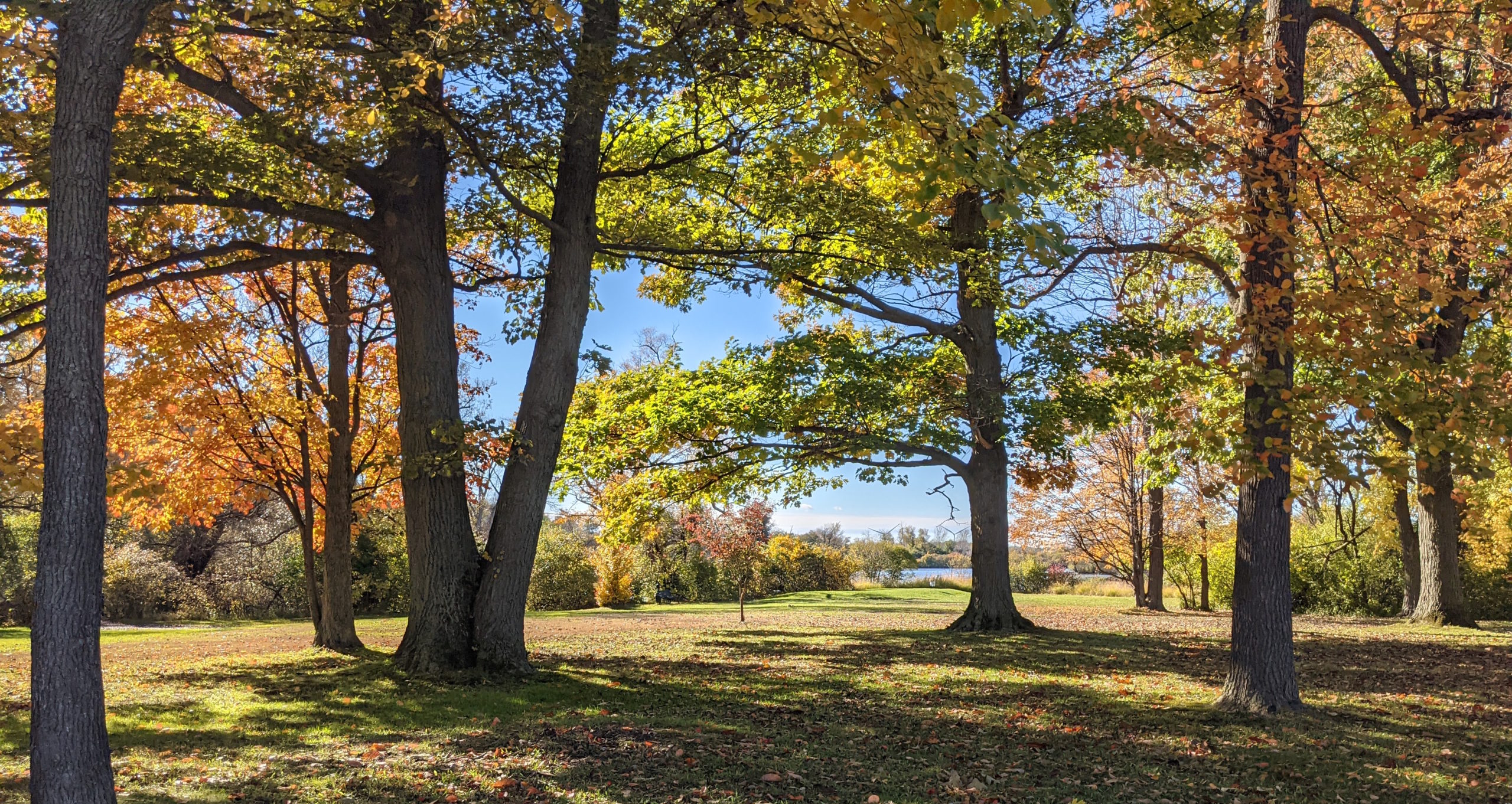
FOR IMMEDIATE RELEASE
Buffalo, N.Y. – The Buffalo Olmsted Parks Conservancy (BOPC) and the South Park Arboretum has been awarded a Level I Accreditation by The ArbNet Arboretum Accreditation Program and The Morton Arboretum, for achieving particular standards of professional practices deemed important for arboreta and botanic gardens. The ArbNet Arboretum Accreditation Program is the only global initiative to officially recognize arboreta at various levels of development, capacity, and professionalism. The South Park Arboretum is also now recognized as an accredited arboretum in the Morton Register of Arboreta, a database of the world’s arboreta and gardens dedicated to woody plants.
“Earning the distinction as a Level I ArbNet accredited Arboretum will further strengthen our national and global ties to the arboreta and botanical garden communities, aiding in our ever-increasing pursuit of knowledge surrounding the power of connecting people and plants,” said Arboretum Director and Curator Margaret Lapp.
The arboretum at South Park has a rich history as it constitutes a small category of arboreta and associated gardens the Olmsted firm designed. Of those, about 15 projects produced design plans–South Park Arboretum is one of these. Extensive planning for the Buffalo Park system was completed by Frederick Law Olmsted and his firm from the 1860s until the 1890s, creating the nation’s first coordinated system of public parks and parkways. Unique to this park system is the South Park Arboretum, which was intended as an institution for public education.
In 2016 the Buffalo Olmsted Parks Conservancy initiated a South Park Arboretum Restoration Project Feasibility Study, developed by Kyle Zick Landscape Architects. The Conservancy has completed phase one of the restoration and is currently involved in phase two with the Nursery Complex as the signature project. Updates on this phase will be provided to the community over the coming months.
###
About the Buffalo Olmsted Parks Conservancy
The Buffalo Olmsted Parks Conservancy is the first nonprofit organization in the nation, through a unique public-private partnership, to manage, operate and maintain an entire urban park system consisting of more than 850 acres of beautifully designed historic parks, parkways and circles. The Conservancy is an independent not-for-profit, community organization whose mission is to steward Buffalo’s historic Olmsted park system to welcome and benefit all. To accomplish this, the Conservancy collaborates with community and strategic partners, advocates for quality parks for all, and enhances the park system through beautification, maintenance, and capital projects. More than 2.5 million visits occur in Buffalo’s Olmsted Park system annually for recreation, relaxation, and rejuvenation.
The Buffalo Olmsted Park System includes:
Six parks: Cazenovia, Delaware, Front, Martin Luther King, Jr., Riverside, and South
Seven parkways: Bidwell, Chapin, Lincoln, McKinley, Porter, Red Jacket, and Richmond
Eight landscaped traffic circles: Agassiz, Colonial, Ferry, Gates, McClellan, McKinley, Soldiers, and Symphony
Smaller spaces: Days, Heacock and Prospect
About ArbNet
ArbNet is an interactive, collaborative, international community of arboreta. ArbNet facilitates the sharing of knowledge, experience, and other resources to help arboreta meet their institutional goals and works to raise professional standards through the ArbNet Arboretum Accreditation Program. The accreditation program, sponsored and coordinated by The Morton Arboretum in Lisle, Illinois in cooperation with American Public Gardens Association and Botanic Gardens Conservation International, is the only global initiative to officially recognize arboreta based on a set of professional standards. The program offers four levels of accreditation, recognizing arboreta of various degrees of development, capacity and professionalism. Standards include planning, governance, public access, programming and tree science, planting and conservation. More information is available at www.arbnet.org.
###


